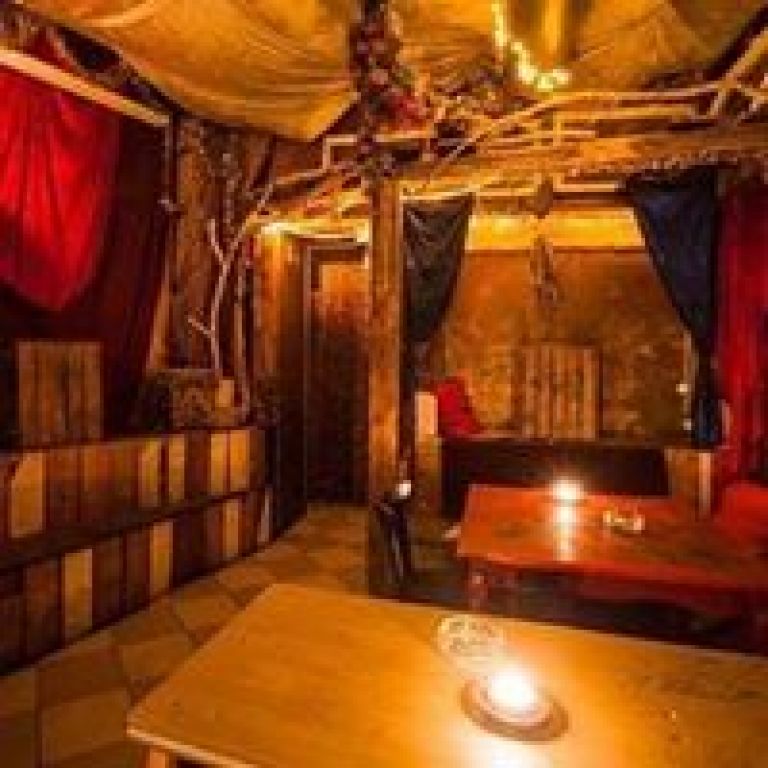“Panic. This is a reference to the god ‘Pan’ - The Panic Movement is a sexual act in its totality.” - Marcel Marceau Panic Movement (Mouvement panique) was a collective formed by Fernando Arrabal, Alejandro Jodorowsky and Roland Topor in Paris, France in 1962. Inspired by and named after the god Pan, and influenced by Luis Buñuel and Antonin Artaud's Theatre of Cruelty, the group concentrated on chaotic happenings containing performance art and surreal imagery, designed to be shocking, as a response to surrealism becoming petite bourgeoisie and to release destructive energies in search of peace and beauty. Pan : Greek God famous for his sexual prowess and an archetype of virility. Apparently when he was born, his nurse saw his horns and beard and ran away in fright or ‘panic.’ Pan was later known for his music, capable of rousing inspiration, sexuality or panic. [It’s likely that the horns and cloven hooves of early Christian representations of Satan are taken from Pagan images of Pan]. Many of Jodorowsky’s early plays and collaborations (with Leonora Carrington & Fernando Arrabal) were all censored by the Mexican government. In1962, while in Paris, partly as a reaction to the censorship, Jodorowsky, Arrabal and Topor launched the Panic Movement, creating a symbolic association within the context of an avant-garde, aiming to find some alternative to the battered surrealist hegemony. The Panic Movement was marked by the ambition to confront the audience’s despicable passivity and neutralization through the imitative condition of theatre and the abstraction of modern art, through an erasure of distance. At the time, breaking with the bourgeois order was tantamount to putting the audience on the verge of a crisis, which is exactly what Artaud had sought with his metaphor of the ‘plague-ridden city.’ “Panic” is a spirit closely related to times of transition: “Panic always appears as the announcement of spiritual birth” - Alejandro Jodorowsky Under the protection of Pan, the Greek god of goats, priapism, terror and laughter, the Panic Movement addressed the opposition between established culture and panic attack, to help dislodge an inert mass. “Human beings who have been relegated to the lowest rank of the spirit, that of ‘spectators,’ men who do not really partake of existence, but think or wish to ‘know’ it without having to move from their seats.” The Panic was an intense search by transcending the Aristotelian society and to leave a legacy that drives humankind to a new perspective. “The panic is the critique of pure reason, it is the gang without laws and with no control, it is the explosion of ‘Pan’ (anything), it is respect and disrespectful to the god Pan, it is the hymn to the talent…gone insane, it is the anti movement, it is the rejection of the ‘serious’, the song is a lack of ambiguity…it is the art of living (which takes into account the confusion and randomness), it is the principle of indeterminacy with memory by…and half the contrary.” - Fernando Arrabal. The Panic Movement was a cohesive artist platform. The panic and the mania it produced was a sporadic grouping, throwing up spurts of activity. Panic shunned any sense of permanency or formation, avoiding the trappings of behaviour codes or strict terms of rationale. The only recognisable focus that panic maintained was on their unforgiving modus operandi. Inspired by pop culture and fuelled by disaffection, Jodorowsky, Arrabal and Topor, staged various Panic ‘Ephemeras’ ; Punk events with an emphasis on transience and an impression of urgency. Panic Happenings: Manifested through three basic elements: Horror, Humour and simultaneity. The sole intent was to attack the audience with a barrage of conflicting yet rhythmic stimuli; the effect was a jarring sensory overload. Through this crazed fractured riot of noise, colour and mood, the idea was that the witness could somehow assemble their own sense of reality. Built around a schematic script and consisting of improvised and ritual actions derived from daily behaviour and visual acts, radicalising transgression and violence, but that took place just once, instead of a traditional theatrical run. It was the fusion of fiesta and a show, a dissolution of the kind of theatre that tries to identify the play with reality, just as visual artists were then attempting to dissolve the notion of the object. Panic ephemerals are “ruled by choices taken in a predetermined state of euphoria.” These actions were a sequence of iconoclastic acts mixed with turbulent actions and sermons, sexual innuendos, and mostly destructive operations on objects and images. The most notorious Panic happening was a four-hour performance known as Sacramental Melodrama, staged in May 1965 at the Paris Festival of Free Expression. It starred Jodorowsky dressed in motorcyclist leather and featured him slitting the throats of two geese while his costume was cut off by topless women covered in honey, taping two snakes to his chest and having himself stripped and whipped. Other scenes included, using a wooden cross (with a crucified chicken nailed to it) as a giant phallus, the symbolic castration of a rabbi, and a huge plastic vagina spewing live turtles and other objects into the audience which gave birth to Jodorowsky – all to the constant sound of a live rock band.
Filme in der Liste
Kommentare
Eure letzten Kommentare
Interesting! You get a DVD
Interesting! You get a DVD Flat at Filmkunstbar Fitzcarraldo!
- Anmelden oder Registieren, um Kommentare verfassen zu können

Deckungsgleich mit meinen
Deckungsgleich mit meinen Alltime Favorites!
- Anmelden oder Registieren, um Kommentare verfassen zu können













Werde Teil der Community
Schreibe Kommentare, vote für Deine Favoriten oder sende uns Deinen Film-Vorschlag.